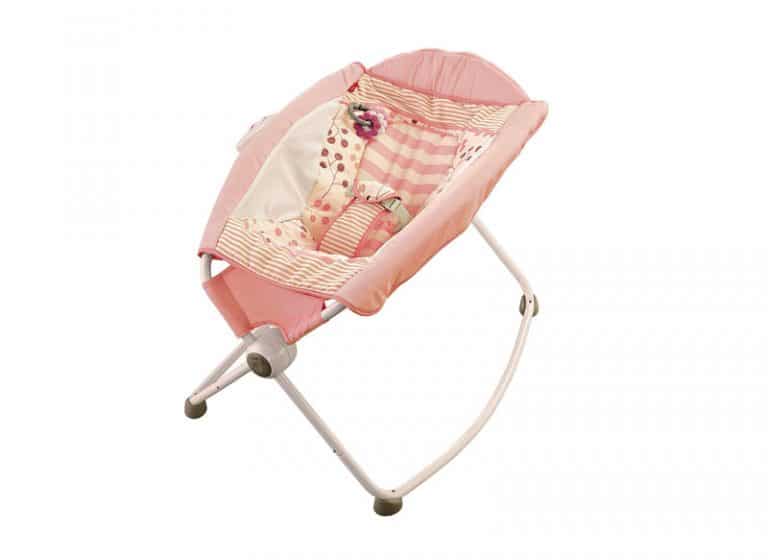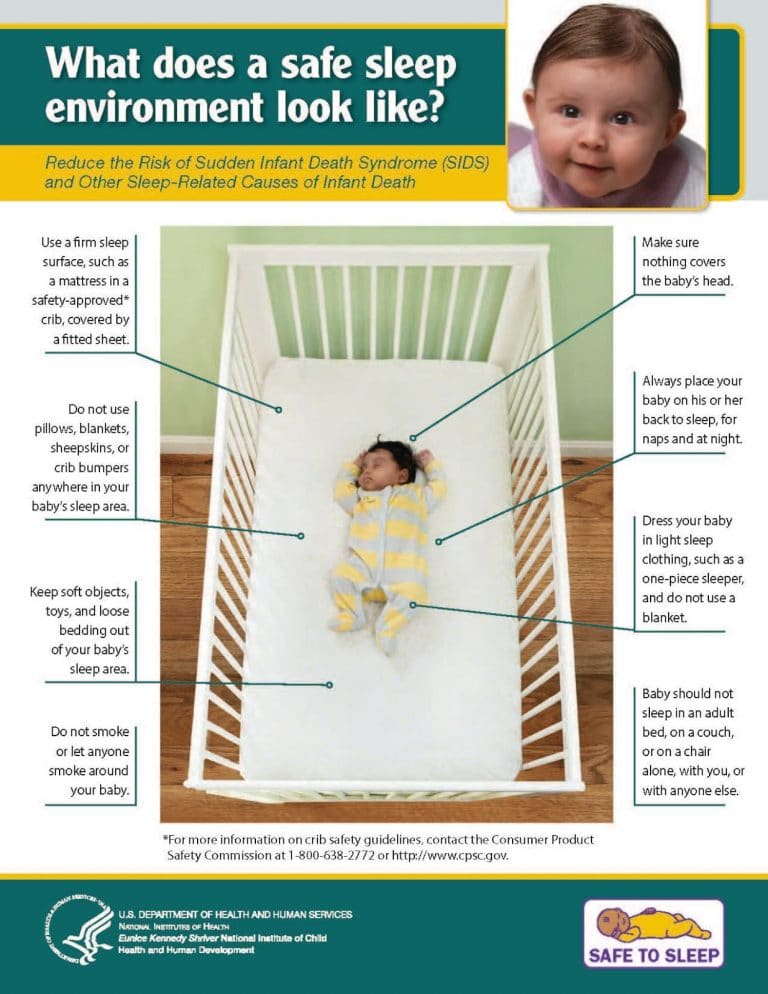
Infant Deaths, Outrage Finally Lead to Fisher-Price Recall
The death of a child is a tragedy no parent wants to imagine. For dozens of parents across the United States, that tragedy has become a reality in a most heartbreaking way. At MedMalFirm.com, our…
The death of a child is a tragedy no parent wants to imagine. For dozens of parents across the United States, that tragedy has become a reality in a most heartbreaking way. At MedMalFirm.com, our Houston wrongful death lawyers have been following the tragedy of infant deaths related to a popular Fisher-Price infant product – the Rock ‘n Play Sleeper.
The Rock ‘n Play Sleeper is a product marketed to families with infants. It promises comfort and security for infants as they sleep. Now, those promises seem hollow after a consumer watchdog group found that 32 infants have died while using the Sleeper, yet no recall was issued.
Our attorneys are heartbroken for the tragic loss of innocent lives as a result of a product that should have been recalled much sooner. Now, it is our hope that families will look to hold Fisher-Price accountable for these wrongful deaths.

Infant Deaths Lead to Outrage
On April 10, 2019, Fisher-Price and the Consumer Product Safety Commission (CPSC) issued a warning to parents about the popular Rock ‘n Play Sleeper. Numerous infant deaths had been linked to the cloth-covered Sleeper. In each of the deaths, the child had rolled over to the side or onto their stomach, which resulted in asphyxiation.
The warning to parents urged them not to use the product for infants three months or older, as they are more likely to roll over. The company’s General Manager stated that the product “meets all applicable safety standards.” He went on to say that “It is essential that the product warnings and instructions are always followed.”
In initial reports in early April 2019, Fisher-Price reported that 10 infants had died while using the Sleeper. Recognizing a potential safety concern, Consumer Reports investigated, and found that there were actually 32 infant deaths between 2011 and 2018. Some of those deaths were among infants younger than three months, which contradicts Fisher-Price’s warning that the product was safe for children that age.
Due to this finding, Consumer Reports urged Fisher-Price to recall the product, stating that “We believe that it is not a safe product for parents to use for infants of any age, and the safest thing to do is to recall the product immediately.” This sentiment was reiterated by the American Academy of Pediatrics (AAP), who urged Fisher-Price to immediately recall the product.
The APP further noted that inclined sleepers, in general, are not recommended for infants because when the infant’s head bobs to the side or forward, the trachea can be compressed, resulting in a lack of oxygen.
The number of infant deaths, and the fact that Fisher-Price and the CPSC seemed undisturbed by safety risk related to the product, sparked outrage among parents, the healthcare community, safety advocates, and even the media. Popular media sources like The New York Times, CBS News, and Reuters all reported on the issue with titles clearly reflecting widespread concern.
Part of the outrage is due to the fact that Fisher-Price has sold more than 4.7 million Sleepers since 2009. That represents millions of infants who could be in danger, and numerous deaths that could have been prevented had the product been recalled sooner. Another reason for the outrage is the fact that Fisher-Price was not forthcoming about the number of deaths they were aware of.
Outrage Results in Delayed Recall
The outrage sparked by the safety warning but no recall had a profound impact. Just two days after Fisher-Price warned parents about the dangers of the Rock ‘n Play Sleeper, the company issued a recall of all 4.7 million Sleepers sold. In their recall announcement, Fisher-Price General Manager Chuck Scothon stated “due to reported incidents in which the product was used contrary to the safety warnings and instructions, we have decided to conduct a voluntary recall of the Rock ‘n Play Sleeper in partnership with the Consumer Product Safety Commission.”
Even in their recall announcement, Fisher-Price contended that the product was safe, and suggested that the infant deaths were the result of parents improperly using the product.
The CPSC acknowledged that over 30 infants had died, and stated that the “issue has been a top priority for the agency.” The CPSC is continuing their investigation, and is also now investigating other inclined sleepers. The AAP is urging the CPSC to remove all inclined sleepers from the market, as they go against safe sleep environment recommendations from pediatric experts.

Infant Deaths Make International Headlines
Outside the U.S., the Rock ‘n Play Sleeper is also making headlines. In Australia, the Australian Competition and Consumer Commission (ACCC) is investigating the Sleepers “as a matter of priority” following reports of infant deaths in the U.S. In Canada, there is a Rock ‘n Play Soother, which is almost identical in design, but is not marketed for unattended sleep.
A Problem with Recalls
Many people are questioning why Fisher-Price did not issue a recall, and why the CPSC did not demand the Rock ‘n Play Sleeper be recalled. An article in The New York Times detailed the “path to a recall”, which shines some light on the process, but does not instill confidence in all recall decisions made.
Before issuing a recall, the CPSC must determine that there is “substantial product hazard.” To do this, the CPSC reviews whether the risk of injury is obvious, the severity of risk, and the number of people who may be at risk due to exposure to the product. Next, the CPSC and the manufacturer collaborate to determine if a recall is warranted. If so, they will determine guidelines, such as how many products, and whether consumers will be issued refunds, credit, etc.
Most product recalls are voluntary, and are issued after a manufacturer learns about a defect or danger. However, if the CPSC discovers a safety concern, the agency can order a mandatory recall. The is done by suing the company if it refuses to a voluntary recall. The CPSC can threaten to expose their case and the product’s dangers to the public if the manufacturer does not agree.
In the case of the Rock ‘n Play Sleeper, 32 infant deaths were not enough to prompt the CPSC to order a mandatory recall, nor was it enough to incite Fisher-Price to voluntarily recall the product.
Changing Landscape for Regulators?
Pamela Gilbert was the Executive Director of the CPSC from 1995 until 2001. She has told journalists that the CPSC now leans more heavily on warnings, rather than recalls. The former Director stated that shifting away from recalls is a “very dangerous trend.”
Warnings may get some attention, but recalls give consumers a sense of urgency. Consumers pay more attention to recall notices than they do safety alerts. In regard to Fisher-Price, Gilbert stated that,
“When deaths are involved, especially for babies and children, warnings are really not the appropriate remedy.”
Gilbert now works as a consumer safety lawyer, and believes that U.S. consumers need to be better informed about dangerous or defective products. Per Gilbert to The New York Times, “if consumers knew that their babies could die, they wouldn’t buy it. The penalty for a caregiver failing to use a restraint should not be the baby’s death.”
Contact Caring Wrongful Death Attorneys
Infant deaths resulting from a dangerous or defective product are incredibly tragic. Parents who have suffered injury or death of a child will no doubt want to hold Fisher-Price accountable for their errors in marketing a product that was clearly unsafe. While holding a manufacturer accountable can never replace what was lost, it can help grieving families have some confidence that their actions may help prevent infants from being harmed in the future.
If you have questions about defective products, or are interested in learning more about a wrongful death claim, contact MedMalFirm.com for a free consultation. Fill out our online form, and one of our attorneys will contact you shortly.
